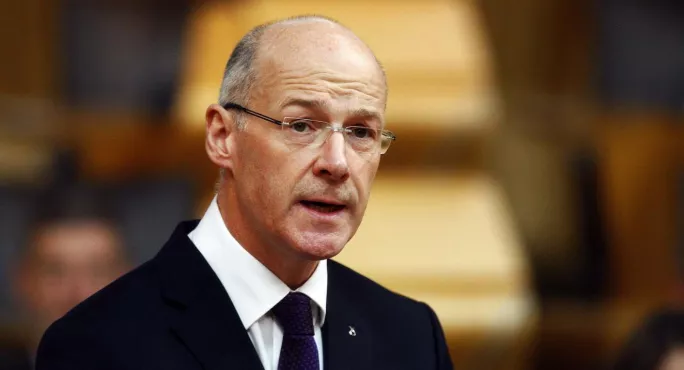Secondary headteachers are describing the decision by Scotland’s education secretary to shelve legislation that would have given them more say over how their schools are run as “a wasted opportunity”.
Yesterday, education secretary John Swinney revealed that the long-awaited legislation on handing more power direct to schools had been delayed and might never come to pass.
Mr Swinney said he planned to give councils a chance over the next 12 months to show that they could improve performance without a change in the law, arguing he was “fast-tracking” educational reform because there would be no 18-month wait for an education bill.
However, School Leaders Scotland (SLS) general secretary Jim Thewliss told Tes Scotland that the move - which was described as “the mother of all ministerial climbdowns” by Scottish Labour’s Iain Gray - amounted to a “wasted opportunity”.
Mr Thewliss said that empowering headteachers to take decisions in direct response to their specific circumstances would have been “a powerful way to improve the life chances of Scotland’s young people”.
Pressure over teachers’ pay
The news comes as Scotland’s largest teaching union today upped the pressure on Mr Swinney over teachers’ pay by handing 25,000 postcards signed by teachers and others to the education secretary at the Scottish Parliament as part of its campaign for a 10 per cent rise.
Mr Thewliss added: “While we feel that by having proportionate access to the appropriate levers of power headteachers could have driven significant positive system change, SLS will continue in its commitment to working collaboratively with all partners for the benefit of Scotland’s young people.”
Mr Thewliss said, however, that SLS welcomed Mr Swinney’s decision to scrap the Scottish government’s plans to replace the General Teaching Council for Scotland with an Education Workforce Council that would have registered a wider range of education professionals.
Mr Thewliss said: “As in the outcome to any consultation, there will be areas with which you are content and others with which you are less so.”
SLS threw its weight behind the Scottish government’s plans to devolve more power to schools; it saw the bill as an opportunity for heads to respond more directly to the needs of pupils.
Others, however, had their doubts. Primary headteachers said they did not have the capacity to take on additional responsibilities and that even the best system for devolving funding to schools would not overcome the general “shortage of funding in schools at present”.
Meanwhile, the EIS warned the government that it could be responsible for the “Anglicisation of Scottish education” and the creation of “academies-light” if it pushed ahead with the plans, and council education directors said that headteachers could use new “untrammelled powers” to exclude more pupils and turn away children with special needs.
They also warned that money once spent on learning and teaching could be redirected to pay for the business managers headteachers said they would need if they were to be responsible for larger budgets.
A Scottish Government spokesman said councils had committed to empowering headteachers via the deal struck between Mr Swinney and council umbrella body, Cosla.
He continued: “The agreement rightly states that Headteachers are the leaders of learning and teaching in their school, and that the majority of decisions should be made at school level.
“There is agreement to see that this is applied consistently across Scotland, which means implementation will begin this year.”





